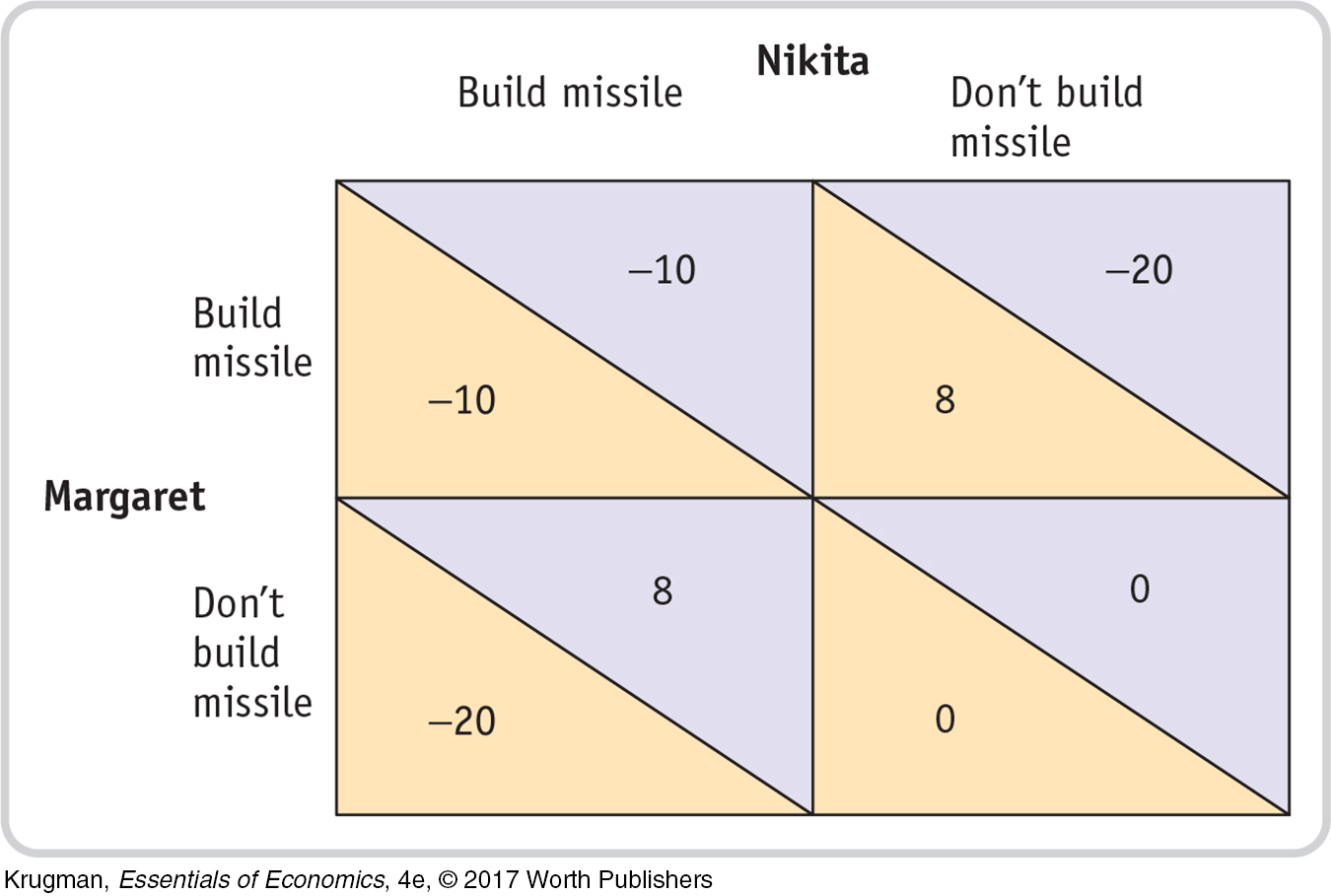Question 9.4
1. Find the Nash (noncooperative) equilibrium actions for the following payoff matrix. Which actions maximize the total payoff of Nikita and Margaret? Why is it unlikely that they will choose those actions without some communication?

When Margaret builds a missile, Nikita’s payoff from building a missile as well is −10; it is −20 if he does not. The same set of payoffs holds for Margaret when Nikita builds a missile: her payoff is −10 if she builds one as well, −20 if she does not. So it is a Nash (or noncooperative) equilibrium for both Margaret and Nikita to build missiles, and their total payoff is (−10) + (−10) = −20. But their total payoff is greatest when neither builds a missile: their total payoff is 0 + 0 = 0. But this outcome—the cooperative outcome—is unlikely. If Margaret builds a missile but Nikita does not, Margaret gets a payoff of +8, rather than the 0 she gets if she doesn’t build a missile. So Margaret is better off if she builds a missile but Nikita doesn’t. Similarly, Nikita is better off if he builds a missile but Margaret doesn’t: he gets a payoff of +8, rather than the 0 he gets if he doesn’t build a missile. So both players have an incentive to build a missile. Both will build a missile, and each gets a payoff of −10. So unless Nikita and Margaret are able to communicate in some way to enforce cooperation, they will act in their own individual interests and each will build a missile.